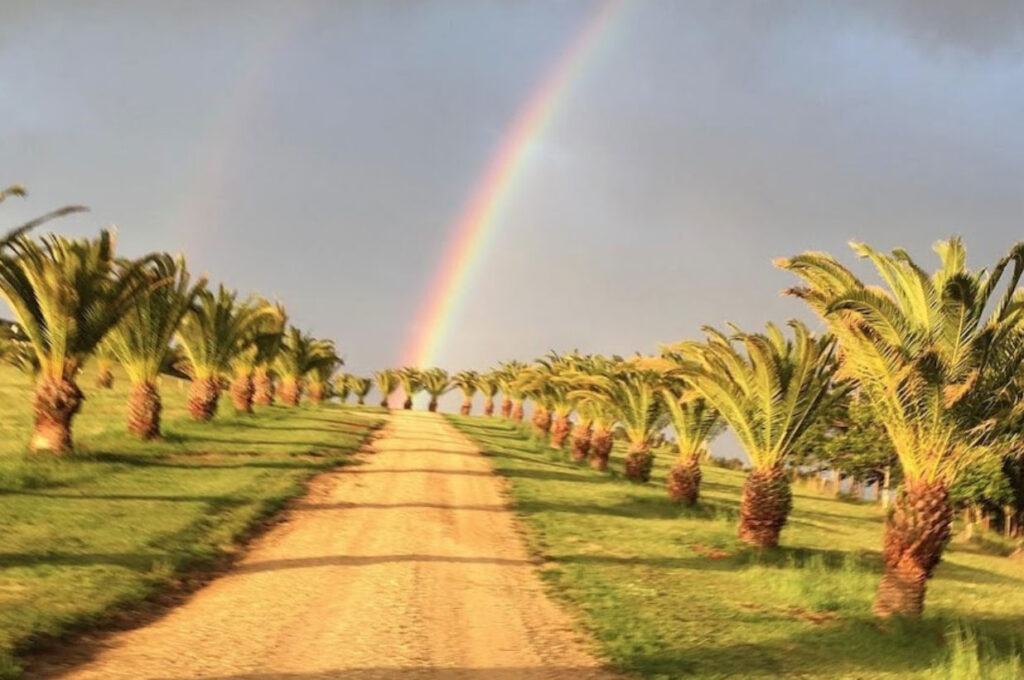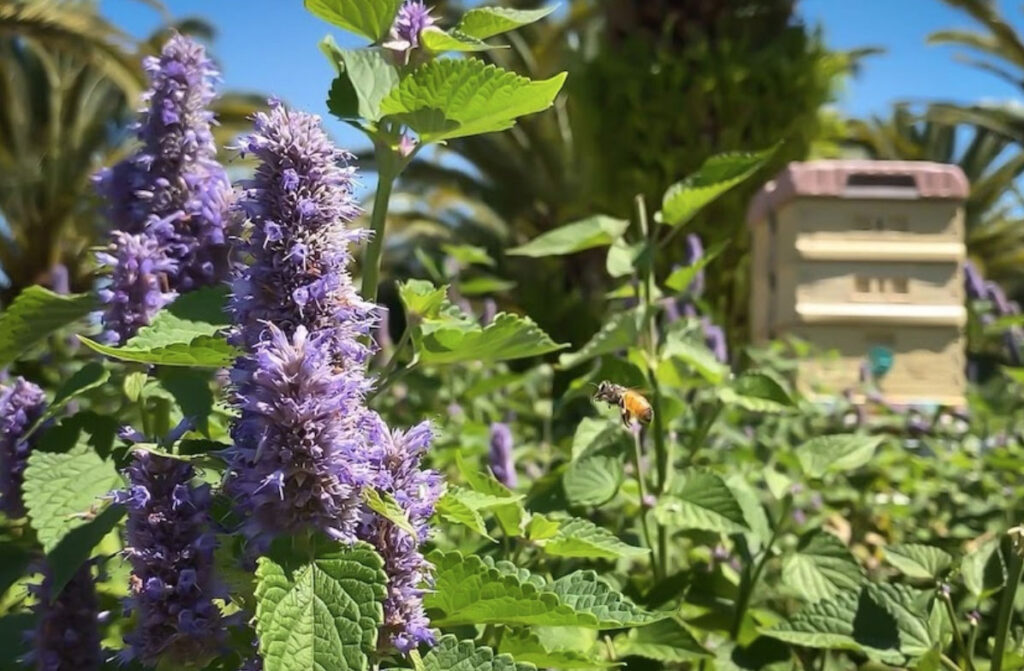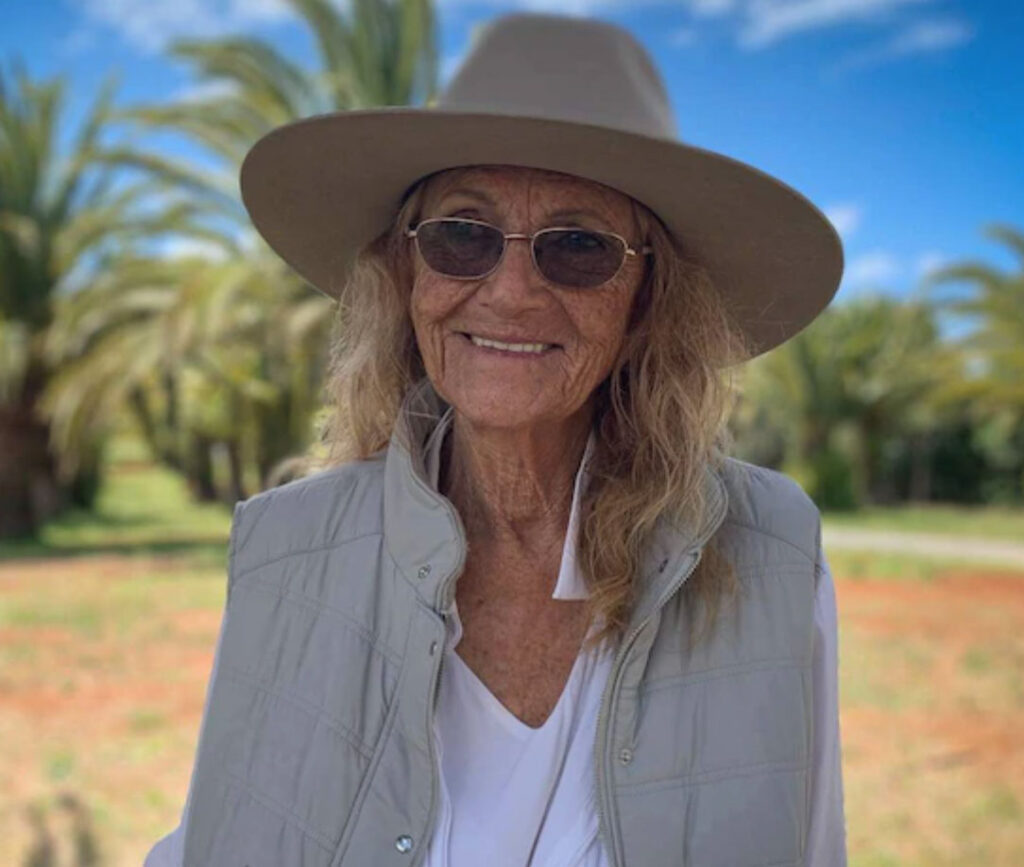Welcome to The Honey Pot, Stories From The HIve… May ‘21
And now for something a little different! This article appeared in my local Amature Bee Keeping Newsletter and I just HAD to share it with you! It’s amazing what a teaspoon of honey can do!
Enjoy TK x
Australian Aphrodisiac honey from Phoenix palm creates buzz in Middle East
A boutique blend of honey produced in northern New South Wales has become sought after in the Middle East where it is consumed as an aphrodisiac. Apiarist Gabrielle Morley, 80, originally planted hundreds of Phoenix date palms (Phoenix canariensis) on her property near Byron Bay to sell as landscaping plants.
However, a trip to the United Arab Emirates revealed the palms were considered more than ornamental. “We were in the markets and the traders there started offering us Viagra, and I was a bit taken aback because at our age we don’t need it,” Ms Morley said.



“But it turned out what they were offering us were the male flowers of these trees, and I was a bit astounded “I had no idea that I had a paddock full of Viagra.” More than an aphrodisiacMs Morley returned to Australia and discovered several studies that endorsed the Phoenix palm pollen as a natural aphrodisiac and fertility enhancer.
“It was a bit different to Viagra, which gives people an inclination,” Ms Morley said.
“This actually gave them the ammunition as well, so for me this spelt hormone therapy equals anti-ageing equals I need this.”
UAE-based honey importer Riath Hamed said the properties of the Phoenix palm were well known in the Middle East, but Ms Morley’s honey was not marketed as an aphrodisiac alone.
“The way we market is just the authenticity of how Gabrielle respects the environment, the authenticity of how she is as a beekeeper, and the biodiversity of her ecosystem,” Mr Hamed said. “And the flavour profile of her honey is unique.”
Nutrient-dense plant species are grown for bees at Gabrielle Morley’s property. A bee sanctuary
Ms Morley became an apiarist four years ago at age 76 when she realised she would need the help of bees to reach the palm pollen.
“It’s a bit risky to be up the tree, they’re prickly,” she said. “Most beekeepers are pretty old people anyway, so I thought how hard could it be?”
While researching beekeeping, Ms Morley discovered her bees would need more than the Phoenix palms to have a properly balanced diet.
She converted her property into a bee sanctuary, filled with specially chosen nutrient-dense plants and medicinal herbs such as lemon balm, lavender, alyssum, anise hyssop, and jelly bush (manuka).
“Bees all over the globe are basically in a whole lot of trouble from monoculture and the practices that are used,” Ms Morley said.
“If they put you in an orchard full of one thing for a few months and you’ve got an unbalanced diet you’re not going to be healthy.
“Bees are really important for agriculture, so if people can learn to put in other species besides the monoculture crops, I’m sure it will help the bees to be a lot healthier.”
Ms Morley’s methods mean there are always flowers in bloom onsite, so her hives never have to be moved, her bees are not fed sugar supplements, and there is no need for chemical herbicides, pesticides or fertilisers.
“It’s very gratifying really,” Ms Morley said.
“I hope that a lot of the small boutique honey producers can benefit from the trials that I’ve done in producing really high-quality honey.”




